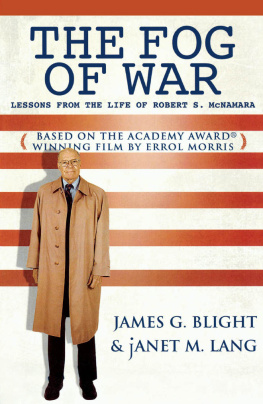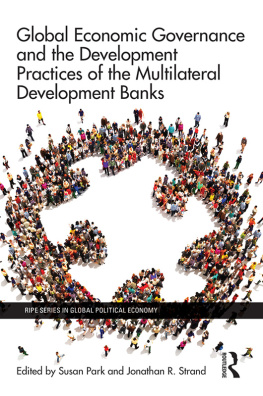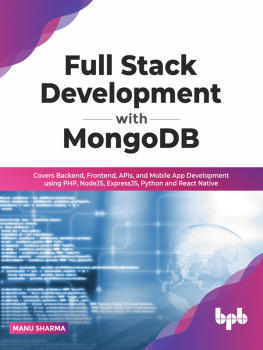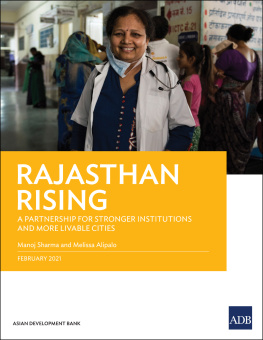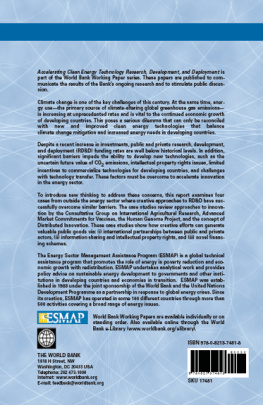Patrick Allan Sharma - Robert McNamaras Other War: The World Bank and International Development
Here you can read online Patrick Allan Sharma - Robert McNamaras Other War: The World Bank and International Development full text of the book (entire story) in english for free. Download pdf and epub, get meaning, cover and reviews about this ebook. year: 2017, publisher: University of Pennsylvania Press, genre: Science. Description of the work, (preface) as well as reviews are available. Best literature library LitArk.com created for fans of good reading and offers a wide selection of genres:
Romance novel
Science fiction
Adventure
Detective
Science
History
Home and family
Prose
Art
Politics
Computer
Non-fiction
Religion
Business
Children
Humor
Choose a favorite category and find really read worthwhile books. Enjoy immersion in the world of imagination, feel the emotions of the characters or learn something new for yourself, make an fascinating discovery.

- Book:Robert McNamaras Other War: The World Bank and International Development
- Author:
- Publisher:University of Pennsylvania Press
- Genre:
- Year:2017
- Rating:4 / 5
- Favourites:Add to favourites
- Your mark:
- 80
- 1
- 2
- 3
- 4
- 5
Robert McNamaras Other War: The World Bank and International Development: summary, description and annotation
We offer to read an annotation, description, summary or preface (depends on what the author of the book "Robert McNamaras Other War: The World Bank and International Development" wrote himself). If you haven't found the necessary information about the book — write in the comments, we will try to find it.
Robert McNamaras Other War: The World Bank and International Development — read online for free the complete book (whole text) full work
Below is the text of the book, divided by pages. System saving the place of the last page read, allows you to conveniently read the book "Robert McNamaras Other War: The World Bank and International Development" online for free, without having to search again every time where you left off. Put a bookmark, and you can go to the page where you finished reading at any time.
Font size:
Interval:
Bookmark:
Robert McNamaras Other War
POLITICS AND CULTURE IN MODERN AMERICA
Series Editors: Margot Canaday, Glenda Gilmore, Michael Kazin, Stephen Pitti, Thomas J. Sugrue
Volumes in the series narrate and analyze political and social change in the broadest dimensions from 1865 to the present, including ideas about the ways people have sought and wielded power in the public sphere and the language and institutions of politics at all levelslocal, national, and transnational. The series is motivated by a desire to reverse the fragmentation of modern U.S. history and to encourage synthetic perspectives on social movements and the state, on gender, race, and labor, and on intellectual history and popular culture.
Other War

The World Bank
and International Development
Patrick Allan Sharma

Copyright 2017 University of Pennsylvania Press
All rights reserved. Except for brief quotations used for purposes of review or scholarly citation, none of this book may be reproduced in any form by any means without written permission from the publisher.
Published by
University of Pennsylvania Press
Philadelphia, Pennsylvania 19104-4112
www.upenn.edu/pennpress
Printed in the United States of America on acid-free paper
1 3 5 7 9 10 8 6 4 2
Library of Congress Cataloging-in-Publication Data
ISBN 978-0-8122-4906-4
For Bitta

On February 28, 1968, in a ceremony in the East Room of the White House, Lyndon Baines Johnson awarded Robert Strange McNamara the Presidential Medal of Freedom. It was a bittersweet moment for the outgoing secretary of defense. On one hand, the president spoke glowingly of McNamaras seven years of public service, especially his transformation of the nations military establishment. On the other hand, even though nobody mentioned it, the Vietnam War was on everyones mind, and the honoree, who had played a key role in guiding U.S. strategy, looked like a broken man. When it came time for McNamara to address the audience, tears welled in his eyes. A few years earlier, he had been considered one of the most capable officials in Washington. Now, battered by criticism and gnawed by doubt, he stood silent, failure personified.
Nevertheless, Johnson sounded a positive note for the future. Although Medal of Freedom recipients were usually at the end of their careers, the president announced that McNamaras most important work lay ahead. Johnson had recently appointed his outgoing defense secretary to the presidency of the World Bank, a Washington-based intergovernmental organization dedicated to promoting global development. In this role, Johnson told the White House audience, McNamara would be able to attack the root causes of violence and turmoil: poverty, disease, ignorance, and hopelessness and thereby win the most important war of all... promot[ing] freedom throughout the world. Then, as if to convince those who doubted that one of the architects of the Vietnam War could succeed in his new fight, Johnson made a bold prediction. Many years hence, he declared, people would look back and say that a revolution of achievement in the developing nations began with the appointment of Robert S. McNamara to the World Bank.
Despite this claim, Robert McNamara soon faded into obscurity. After the ceremony, the man who came to prominence as one of the Whiz Kids
But McNamara never went away. For thirteen years following that day in the White Housenearly twice the time he spent at the U.S. Department of Defensehe continued to put his stamp on history while presiding over the World Bank. Across the Potomac from the Pentagon, the former defense secretary went from prosecuting a war in Vietnam to fighting poverty around the globe. In the process, he transformed the World Bank and the field of international development in important and lasting ways.
This book tells this story. Drawing on a wide range of materials, including previously untapped World Bank documents, it details a largely unexplored chapter in the history of one of the worlds most important international organizations and in the life of one of the twentieth centurys most enigmatic figures. In so doing, it offers a window onto the international politics of the 1970s, the roots of globalization, and the origins of todays development landscape.

Robert McNamara assumed the presidency of the World Bank on April 1, 1968, a little over one month after he tearfully departed the Johnson administration. The Vietnam War had taken an immense toll on him. As a result, few expected much of his time at the Bank. McNamara had other plans. Instead of fading away, the man whose fondness for quantitative analysis once led Senator Barry Goldwater to refer to him an IBM machine with legs immediately set out to reprogram the institution.
Governments led by the United States had created the World Bank alongside the International Monetary Fund (IMF) in the waning days of World War II to ensure that the world economy would not break down and cause World War III. The Banks role was to promote economic expansion by making low-interest loans to governments. The idea was simple. The Bank would finance development projects in cash-strapped countries. This would propel growth, stimulate private investment, and improve living standards.
Despite these ambitious goals, the Bank was a conservative financial institution at heart. It raised most of its money by selling its bonds to private investors, rather than from government contributions. Consequently, the Bank avoided doing things that might jeopardize its creditworthiness. For many years, it did not lend to the worlds poorest countries because it believed that they would be unable to repay. Instead, the Bank lent mainly to governments in better-off nations in Asia, Latin America, and Europe. The Bank also did not fund projects in education, health, or other social sectors. Rather, it directed the bulk of its resources to energy and transportation projects, which Bank officials considered more productive or bankable. The Banks traditionalism was reflected in the composition of its staff, which in its early years was drawn almost entirely from the United States and Great Britain.
This approach did not suit McNamara. He had managed sprawling organizations at Ford and the Pentagon, and he found the Banks smallness unacceptable. Moreover, he viewed international development as a critically important issue. Like many at the time, he saw global poverty as both a humanitarian problem and a source of political conflict. McNamara wanted the Bank to expand its activities to address this set of challenges. I have always regarded the World Bank as something more than a Bank, as a development agency, he stated in his first speech as president. I [am] determined on one thing: that the Bank can and will act.
McNamara pushed the World Bank in a number of new directions upon his arrival. He centralized decision-making authority in the Bank presidency and used this power to expand the organizations borrowing and lending portfolios, staff size, and research program. At the same time, he broadened the organizations focus from promoting the economic growth of developing countries to alleviating poverty within their borders. The vigor with which he sought to remake the Bank underscored his belief in the importance of development and made clear that he viewed the Bank presidency as a way to redeem himself after Vietnam.
Next pageFont size:
Interval:
Bookmark:
Similar books «Robert McNamaras Other War: The World Bank and International Development»
Look at similar books to Robert McNamaras Other War: The World Bank and International Development. We have selected literature similar in name and meaning in the hope of providing readers with more options to find new, interesting, not yet read works.
Discussion, reviews of the book Robert McNamaras Other War: The World Bank and International Development and just readers' own opinions. Leave your comments, write what you think about the work, its meaning or the main characters. Specify what exactly you liked and what you didn't like, and why you think so.

